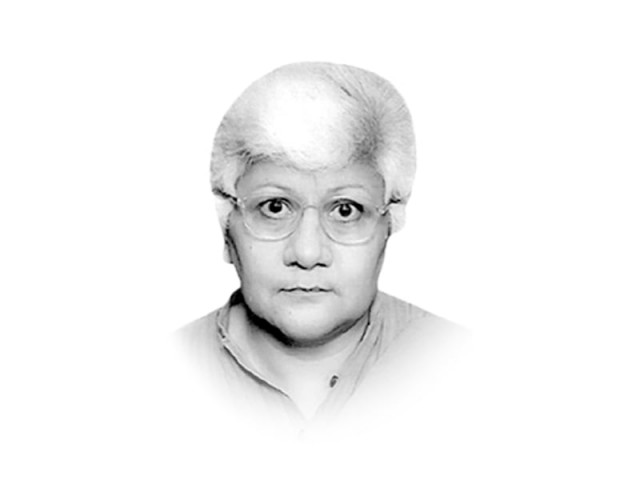The state of social science
HEC was slow to realise the importance of social sciences, apparent by scant thought to social research at the moot.

It seems to me that since HEC has woken up to the importance of the social sciences, rather belatedly owing to an overwhelming focus on the so-called ‘hard sciences’, there is little critical reflection on the role of social sciences and the politics of doing social science in particular ways. Four important aspects were not adequately addressed: One, the origin of social sciences within an ethos of secular liberal humanism and what this implies for social scientists; two, overemphasis on logical positivism at the expense of the interpretive and Critical Theory paradigms that challenge this tendency; three, the collusion of social scientists with state power; and four, the tendency of the social sciences to produce power across society in an attempt at social engineering.
The social sciences owe their philosophical origin to the liberal humanism of the Renaissance when new ideas about man, society and freedom were evolving. The focus was shifting from the Church, political authority and feudal nobility as the source of truth, to the individual and her/his activities, interests and liberty. The individual became the focus of political and institutional action so that justice, equality and human happiness could be ensured and human beings could develop their full potential. Liberal humanism arose against the domination of religious dogmatism and feudal hegemony. It became increasingly secular with the advent of the Reformation and 18th century Enlightenment. Given this history, the social sciences have a role to play in creating a humane, just and equal society instead of focusing immoderately on promoting nationalist, religious or sectarian ideologies of various hues and colours. Liberal humanism is associated with the rise of early capitalism which is regarded as an advance on the feudal-monarchical system prevalent at the time.
The entire conference organised by the HEC seemed to be dominated by notions of logical positivism — the idea that using the scientific and quantitative method is the best way to understand human behaviour and relations. Many students bemoaned the lack of access to statistical knowledge and quantitative methodology. Positivism is based on the assumption that the only knowledge worth pursuing is that which is measurable, quantifiable, verifiable and reliable, with the capacity to predict with precision. Positivists believe that all that is significant in human relations is measurable and controllable. It emphasises the practical usefulness and applicability of knowledge to intervene in society. Intangibles, feelings, fears, joys, desires and moral values which underlie human interactions are not necessarily reducible to exactness, precision and measurement. Qualitative methodologies which are employed globally were not accorded the respect they deserved as most participants seemed to believe that social reality can be reduced to numbers. Developments in particle physics show that even in the hardest of all hard sciences, physics, exact predictability is elusive.
Third, there was very little focus on the collusion of social scientists with state power in the pursuit of aims that are less than ethical. There were a couple of good papers highlighting the collaboration of social scientists with the military and secret agencies; this aspect was not highlighted in the context of Pakistan. Increasingly, social scientists are selling their services to the state and some of this can be used to enhance the power of the rulers rather than serve the ends of a more equal society. With increasing numbers of embedded anthropologists going to countries invaded in order to understand the local social structure to enable the ends of empire, there is a serious need to challenge the uses of the social sciences and humanities in the service of expansionist ends. Dr Saba Gul Khattak was one participant who raised the issues of the state intellectual versus the public and the organic intellectual.
Fourth, there seemed to be inadequate critical reflection on the grandiose assumption of social science, that it can be applied to change individuals and society towards some desired end. This assumption is linear in that it is believed that social scientists can take society from a state of backwardness to progress and development to a higher level. Social scientists fail to challenge their own ethics in their eagerness to carry out social engineering. Psychology, for example, was once dominated by the idea of behaviour modification and psychotherapists intervened to ‘correct’ ‘deviant’ individuals in the endeavour to make them conform to the dominant values of the powerful. The power that is produced by the social disciplines to create a disciplinary society, ultimately serves the powerful and not the subjugated. Social sciences, like the physical sciences, has a responsibility for the knowledge produced, for it has effects on people. The ethics of social research is an area that was not given attention at the HEC conference.
While it is justifiable to lament the decline of social sciences globally and in Pakistan, and to decry the lack of resources for research, publication and the germination of new ideas, it would be useful for social scientists to remember their origins in particular movements and their responsibilities to a just, equal and humane society.
Published in The Express Tribune, May 11th, 2011.















COMMENTS
Comments are moderated and generally will be posted if they are on-topic and not abusive.
For more information, please see our Comments FAQ